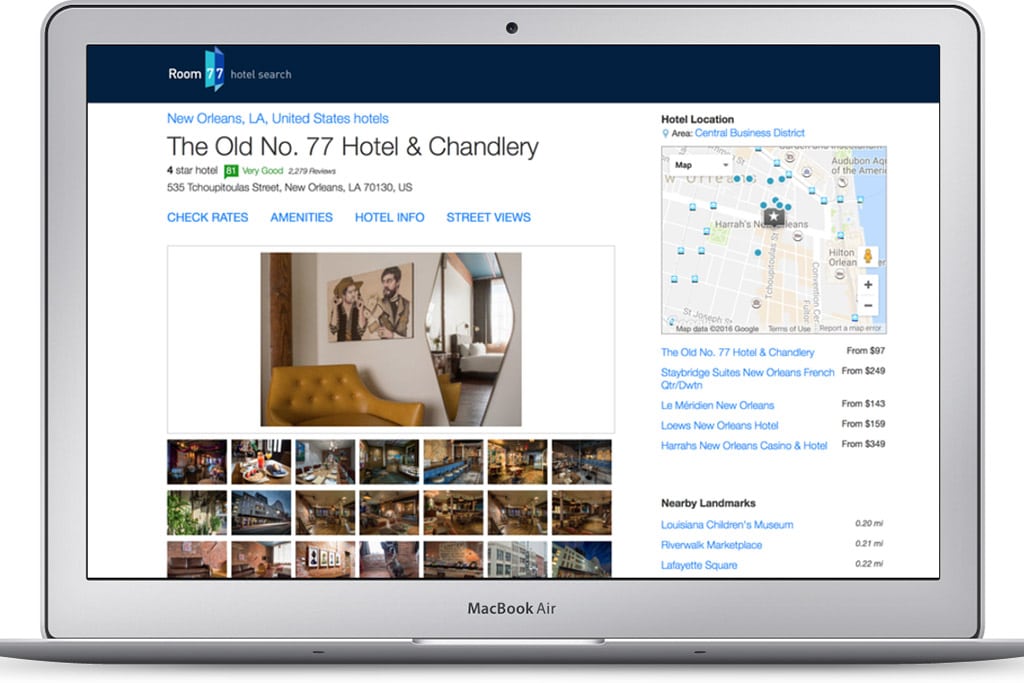Room 77 Investors Lost Half of Their Investment, Employees Got Nothing

Skift Take
Like Hipmunk, Room 77 had an innovative product and talented team but ran into a buzz saw: the marketing clout of Google preferencing its own products, and Expedia, Booking.com and Kayak. Don't feel sorry for the venture capital firms receiving just 53 cents on the dollar. That's the game they play. The real losers are the angel investor and employees, although we're sure for many it was quite a ride nonetheless.
As the original Room 77 liquidates the company, founder Brad Gerstner of Altimeter Capital and CEO Drew Patterson informed preferred shareholders that they would receive just 53 cents for every dollar invested, Skift has learned.
In a confidential shareholder update [see below] obtained by Skift, Patterson and Gerstner also indicated that common shareholders, presumably employees, would receive nothing from the proceeds.
"We are reminded that passion, good ideas, and tenacity are conditions required but not sufficient when competing in the entrepreneurial arena," the duo wrote. "We desperately hoped and tried to build a financially rewarding business but like many entrepreneurs before us, had to accept the tough reality that our work while intellectually rewarding was not as financially rewarding as we hoped.
"At the start of this journey, we told the team that most start-ups fail; therefore, it is essential to work on something you are proud of, with people you can have fun with and respect. And most importantly, always remember that you are working with other people’s money, so make the best decisions you can along the way."
Room 77, before it sold its metasearch technology to travel agent messaging app Lola this week, had raised some $43.8 million in funding from companies such as General Catalyst Partners, Concur Technologies, Sutter Hill Ventures and a host of travel industry angels, including Rich Barton, Erik Blackford, Hugh Crean, and many others.
Asset Disposals and Licensing
In addition to the $0.53-cent return on investment for preferred shareholders, there are several revelations in the shareholder letter.
For example, when Room 77 essentially wound down a lot of its metasearch business in 2014, Google paid $15 million to license the technology, probably for use with Google Hotel Ads. Google also hired the bulk of Room 77's employees at that time.
Founded in 2010 and faced with the challenge of co

